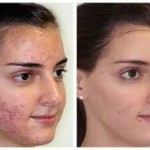 But the iPledge program does not stop there. Unfortunately, there are other secondary side effects of the medication which can affect both men and women and include depression, psychosis, suicidal thoughts and actions, aggression or violent behavior. Either men or women who use Accutane treatment programs should watch for and report: sadness or crying spells, withdrawal from friends, thoughts of hurting themselves, loss of interest in activities they once enjoyed, hearing or seeing things which are not real, irritability, acting on dangerous impulses, trouble concentrating, feeling like they are always tired or have no energy. (4)
But the iPledge program does not stop there. Unfortunately, there are other secondary side effects of the medication which can affect both men and women and include depression, psychosis, suicidal thoughts and actions, aggression or violent behavior. Either men or women who use Accutane treatment programs should watch for and report: sadness or crying spells, withdrawal from friends, thoughts of hurting themselves, loss of interest in activities they once enjoyed, hearing or seeing things which are not real, irritability, acting on dangerous impulses, trouble concentrating, feeling like they are always tired or have no energy. (4)
Another serious medical condition which is caused by the treatment program is an increase in pressure inside the brain which can lead to permanent loss of eyesight and even death. This increased pressure is called increased intracranial pressure. Signs of this increased intracranial pressure which should be immediately reported to your primary care physician are bad headaches, blurred vision, dizziness, nausea, seizures, increased sleepiness or vomiting.
Accutane also has some milder and more common side effects which include dry skin, chapped lips, dry eyes and dry nose that can lead to nose bleeds.
Before beginning an Accutane treatment program, your physician will thoroughly examine your medical history. If someone in the family has had prior problems with asthma, liver disease, diabetes, heart disease, mental illness, osteoporosis or eating disorders your primary care physician may recommend that you not consider this treatment protocol. Other medications which you may also be on such as over the counter drugs, vitamins and herbal supplements will impact your ability to attempt this treatment protocol.
While taking Accutane, individuals should never give blood during the treatment or for one month after stopping the treatment. Unfortunately, another side effect can be night vision loss. Individuals should not drive at night until they are fully aware of how their night vision is affected. Accutane also increases the sensitivity of the skin to sunlight or UV rays from the sun and in tanning beds. For this reason individuals should avoid the use of tanning beds or long exposure to the sun.
Unfortunately, the body does build up a resistance to the use of Accutane and it may require higher and higher doses to treat your acne. Once the treatment protocol has stopped there is a risk of rebound acne called Accutane breakout, that is virtually untreatable and often worse than the original problem.
Accutane acne treatment programs were once thought to be the ultimate answer to all individuals who suffered from severe nodular acne. However, with current knowledge of the serious medical side effects and potential for rebound acne, Accutane treatment programs are becoming much less popular and are reserved only for those sufferers whose psychological stress is severe.
References:
(1) Acta Dermato-Vernereologica: Study of Psycological Stress, Sebum production and Acne Vulgaris in Adolescents
http://www.ncbi.nlm.nih.gov/pubmed/17340019
(2) Roche Pharmaceuticals: NDA pledge
http://www.fda.gov/downloads/drugs/drugsafety/ucm085812.pdf
(3) March of Dimes: Accutane and Other Retinoids
http://www.marchofdimes.com/pregnancy/alcohol_accutane.html
(4) Drugs.com: Accutane
http://www.drugs.com/accutane.html
| Advertisement | |
 |
|


Leave a Reply